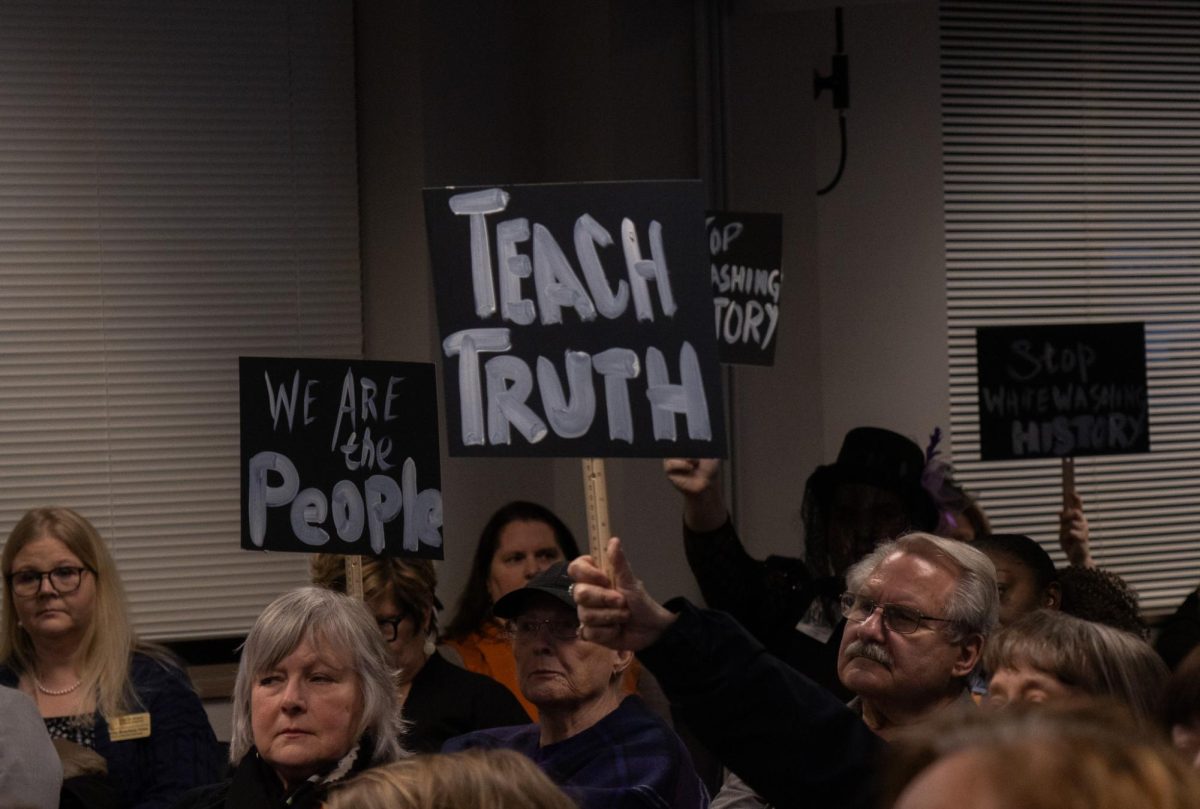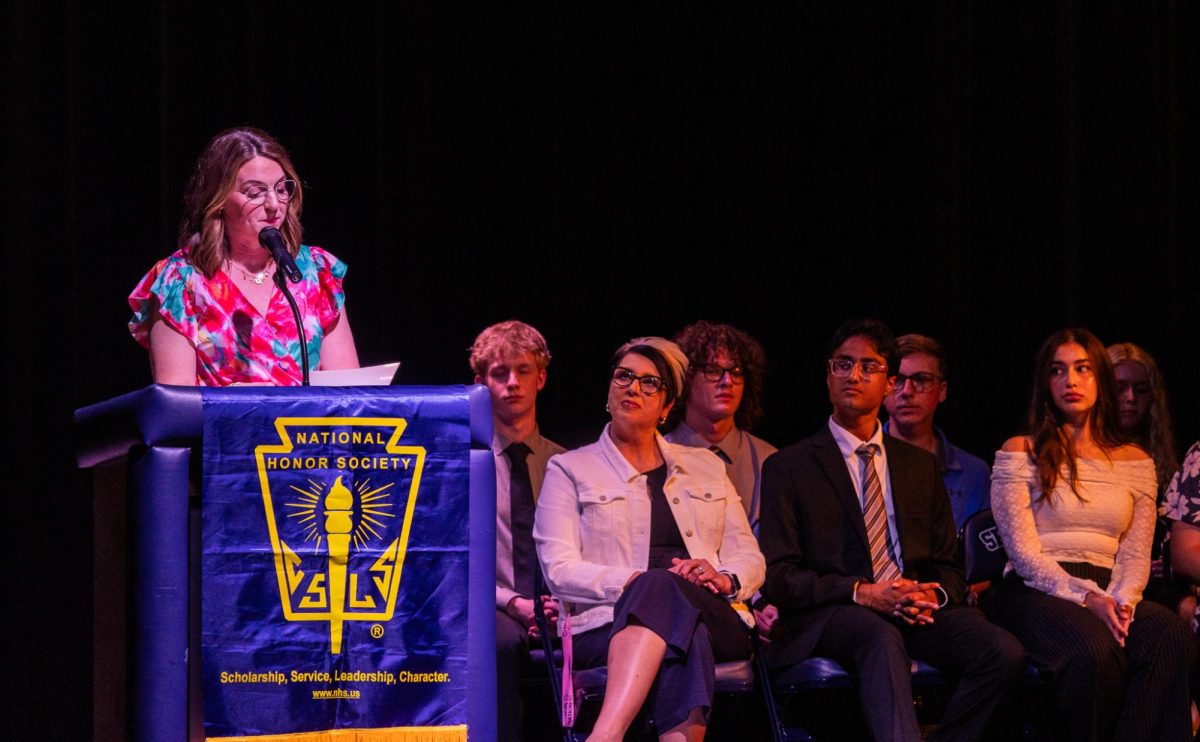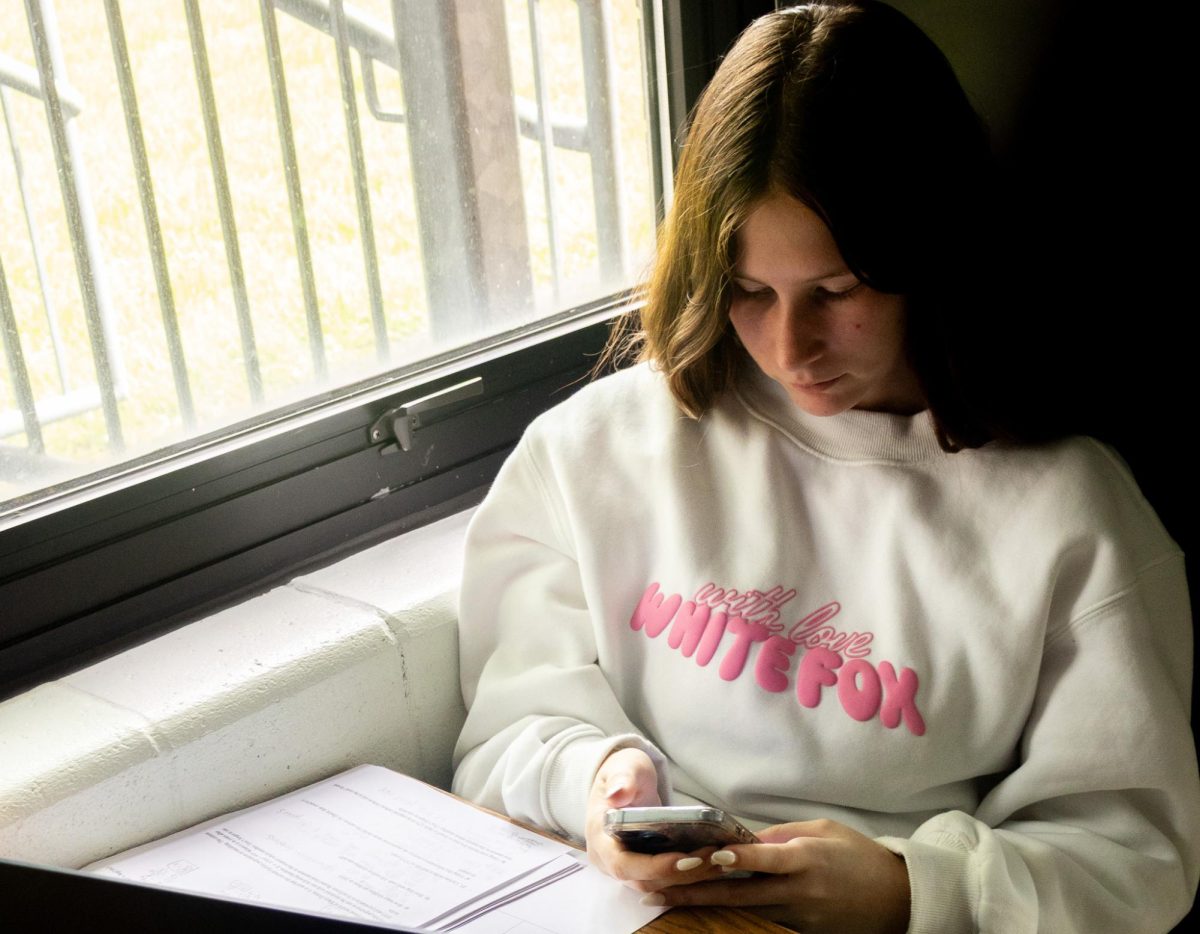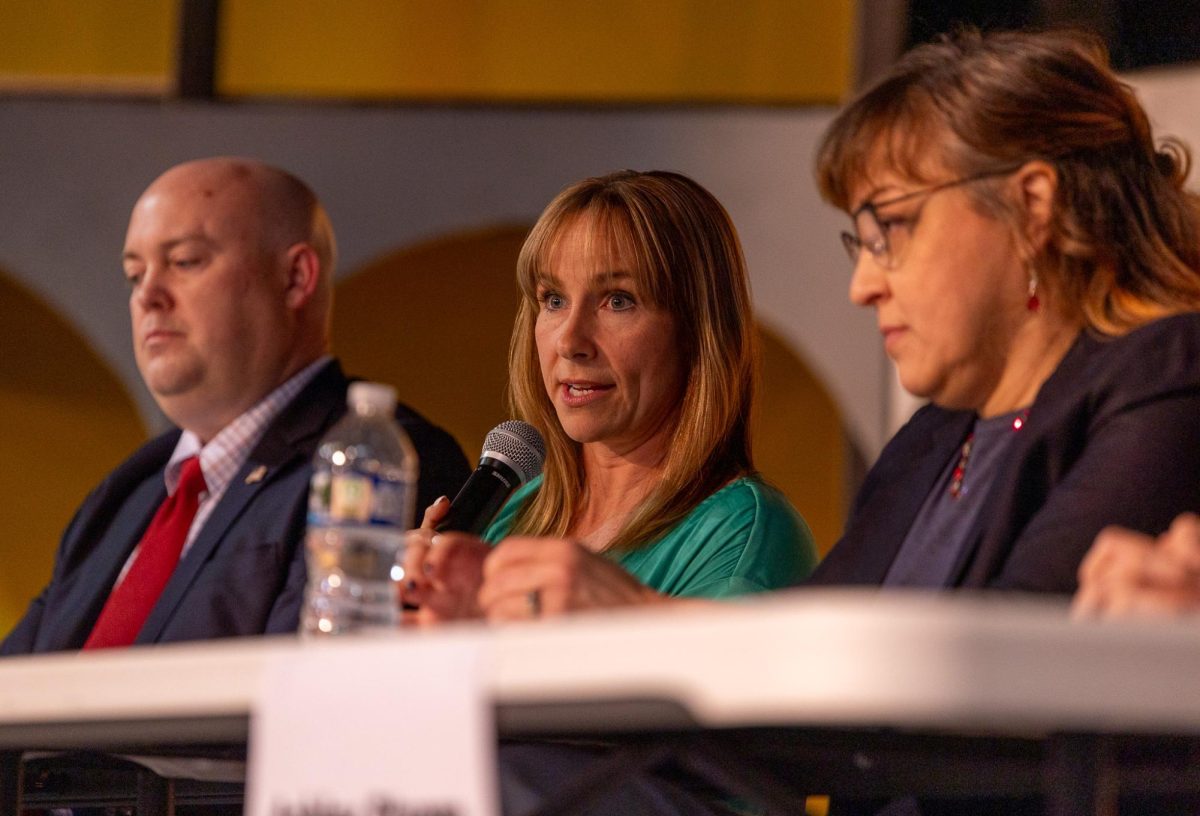The FHSD Board of Education made a decision on Dec. 21, 2023 that sparked both outrage and support across the district. While some organized protests against the decision, others wrote appreciative emails to board members. Ripples of student disappointment and anger turned to waves of petitions and protest movements. The board’s 5-2 vote to rescind approval for the framework of Black History and Black Literature classes left many parents, teachers, and students alike wondering: Why?
Sarah LaRue is an FHC English teacher who has taught for 11 years and hopes to teach Black Literature next year. When she first heard of the board’s decision to remove Black Literature, she was very upset.
“I was really, really angry,” Mrs. LaRue said. “I was heartbroken; I cried.”
Mrs. LaRue’s reaction to the decision was brought on by two things: her love for the class and her love for her students. Mrs. LaRue explained the class’ value comes from its ability to open students’ ears to the voices of Black authors and their experiences.
“The beauty of Black Literature is that it’s an entire semester dedicated to Black authors, and there’s no other class here [that is] just dedicated to one racial experience,” Mrs. LaRue said. “I think that having Black voices is important in the class. Other peoples’ experiences are eye-opening for anybody, regardless of our race. It’s [about] making it known to students that even if they are not Black or they haven’t gone through the same situations, they can still see themselves in and learn from the books that we read.”
Board Vice President Randy Cook explained the Board’s rationale for rescinding the approval for the framework around which the classes are built. He emphasized that he supported Black History and Literature classes, but not the standards on which they were created.
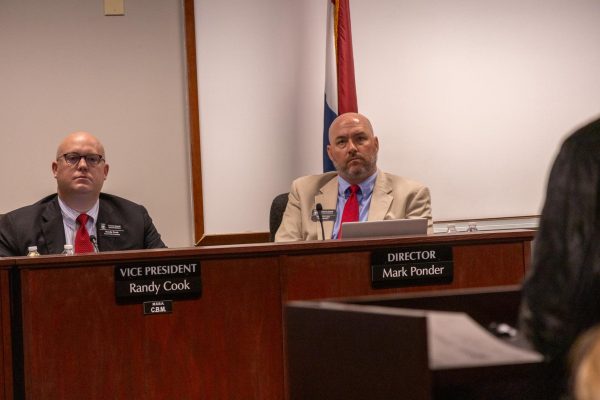
“We don’t object to having a course about Black history or Black literature. We want more kids to learn about history and literature. We would love it if kids were excited about it,” Mr. Cook said. “What we object to is teaching it through a social justice lens, or a Critical Race Theory lens. That’s the part that we find problematic.”
Critical Race Theory is an academic approach to analyzing how politics and history affect (and are affected by) race and racism. According to Mr. Cook, the use of CRT in schools is a controversial issue that played a large role in the school board election in 2021.
“[CRT] was a big focus of my election; one of the big issues that we campaigned on. And given the fact that myself and President Bertrand were elected, we felt that the community agrees that critical race theory is not a framework that they want [teachers] to be teaching within public schools,” Mr. Cook said. “When those Black Literature and Black [History] electives were adopted, there was quite a bit of community concern and flat-out outrage that those classes used those standards.”
Although the board members were concerned that the framework of the classes might be rooted in CRT and encourage social justice activism, Black History teacher Barb Riti does not believe that her class includes these principles at all.
“[CRT] is not something that we employ at all in this class,” Mrs. Riti said. “Black History is just another layer added on to what kids already know and what they’ve studied. Instead of looking through the prism of European history, we look at what was happening in the great African empires, while other parts of the world were just beginning to develop. We look at how the transatlantic slave trade impacted Africa instead of looking at how it impacted the Americas. It’s just another layer of history. I just provide facts and history.”
Mr. Cook and Mrs. Riti agree on this point – Black History is a valuable class. However, Mr. Cook said many revisions are necessary before this class is suitable for high school students.
“Most of the units have some problematic areas in them. That’s not to say there’s not some good portions of the curriculum. There definitely are,” Mr. Cook said. “I learned a [lot] about Black history as I researched every unit. I think it’s a good subject for anyone.”
Since the approval for the original curriculum was rescinded, a revision team of current Black History and Black Literature teachers began working to edit the courses. After being approved by teachers, there was a curriculum review event on Jan. 29, 2024 which allowed the public to see the proposed revisions and share their feedback. The revised curricula will be submitted for the board’s first reading on Feb. 8, 2024 and a vote on March 21, 2024.
Though progress is being made toward approval of new standards for the classes, the announcement of the board’s initial decision was what prompted the wide range of reactions from parents, teachers, and students in the district. Mr. Cook described some of the backlash the board received in response to their vote, as well as some support.
“[Backlash] is an understatement. We’ve gotten a fair amount of email that ranges from cordial to vulgar,” Mr. Cook said. “We’ve also gotten a good amount of email in support of what we did. You know, people saying, ‘We support teaching history but not teaching history with the purpose of social justice.’ We’ve gotten responses from both ends of the spectrum on that decision.”
Some of the backlash, however, was not in the form of email but rather in student protests. FHSD students created a petition to bring the classes back, wore black shirts to school to show their support for representation in classes, and planned a walkout at the three high schools in the district. Mr. Cook has mixed feelings about the protests. He says his opinions on the protest depend on how they came about.
“If [the protests] are formed organically through students, I think their voices are important. If there are parents behind it, I think that’s shameful on the parents’ part to use students as activists,” Mr. Cook said. “I suspect there are parents behind it. But as far as students wearing black shirts or student walkouts, that’s each student’s prerogative if they want to express themselves in that way, and we see it. It’s good to see students involved, even if they don’t agree with us. They’re paying attention to what’s going on in their community.”
Mrs. LaRue believes that the student response to the decision is a reflection of high schoolers’ ability to fight for what they believe in.
“Students who are deeply impacted by this are taking a stance against it and becoming activists which I think is really cool,” Mrs. LaRue said. “I love when teenagers are empowered and are given a voice and I think that’s what’s happening. The board decided to suppress voices. In doing so, they empowered voices.”




